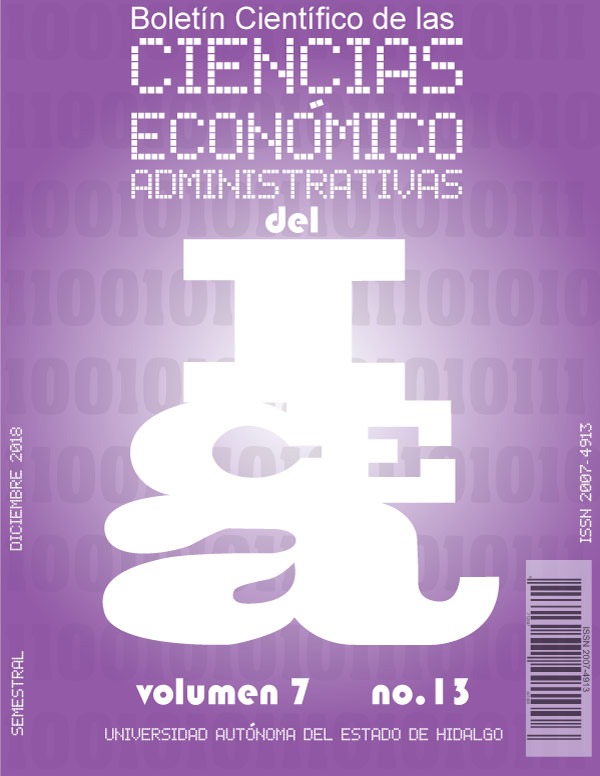Edu entertainment a new form of social marketing
Abstract
Following Jean Vial, (1988) "The link between the game and education have marked humanity from the moment it escaped the determinisms of survival and animality"(p.19) "The main objective of education is to create people capable of doing new things, and not simply repeat what other generations did" Jean Piaget, that is why this work reviews that the current labour market, demands professionals in a future with greater tools of hard sciences, new technologies, social networks, languages and ability to coordinate and manage, so it is important to put a new social context to the generations that are entering the field and not only see "the same as always". The general trends show that learning from experience through the integration of games, such as being professionals, using playful techniques, skills and knowledge change the context in which the individual (child) develops and thus, could change the aspirations, as through the use of Edu-entertainment, as a new form of social marketing where it is possible to generate changes in aspirational behaviour or social appropriation and make a better career choice that allows them to develop in this changing world.
Downloads
References
[2] Consejo Nacional de Ciencia y Tecnologia (CONACYT, 2015). Informe General del estado de la Ciencia, la Tecnología y la Innovación. México, D.F.: Consejo
[3] Sánchez, V. (27 de junio de 2017). Los desafíos de ciencia y la tecnología mexicana. Conacyt, agencia informativa, págs. 1 -5. Recuperado el 10 de Octubre de 2017.
[4] Mariotti, F. (2011). La recreación y los juegos: Las competencias a través del juego. Trillas.
[5] Tufte, T. (2005). Entertainment-education in development communication. Between marketing behaviours and empowering people. (Media & Global change, Ed.) Buenos Aires. : O. Hemer & T. Tufte (Eds.).
[6] Américo, M., Chade de Grande, F., y Tobgyal da Silva, J. (2015). Un acercamiento al Eduentretenimiento. Questión.,
[7] Aksakal, N. (13 de Mayo de 2015). Theoretical View to The Approach of The Edutainment. (Elsevier, Ed.) Procedia - Social and Behavioral Sciences, 186, 1232-1239.
doi: https://doi.org/10.1016/j.sbspro.2015.04.081
[8] Wang, Y., & Xiang, Z. (2007). Toward a theorical framework of collaborative destination marketing. Journal of travel Research, 75-85.
[9] Singhal, A. C. (2004). Entertainment-education and social change: history, research and practice. . Mahwah NJ: Lawrence Erlbaum associates.
[10] Vega, J. (2012). Lessons learned about interpellation, peer communication and second-generation edutainment in sexuality and gender projects among young people. In waisbord, and Obregón: JovenHABLAjoven.
[11] Bandura, A. (2000). Psicologia Social. Obtenido de Adrián Triglia: http://psicologiaymente.net/social/bandura-teoria-aprendizaje-cognitivo-social
[12] Marcos Américo, F. C. (2015). UN ACERCAMIENTO AL EDUENTRETENIMIENTO. QUESTIÓN, 1-5.
[13] Kotler, P. (2013). Fundamentos de Mercadotecnia (Decimo primera ed.). Pearson Educación de México.
[14] Tufte, T. (2009). El edu entretenimiento, una estrategia comunicacional contra la violencia y los conflictos. Recuperado el 20 de 01 de 2018, de http://www.seminariovirtual.org/comunicaciondesarrollo/index.html.
[15] Ausubel, D. (1983). Teoria de Aprendizaje Significativo. México: Trillas.
[16] Burgos Flores, B., & López Montes, K. (octubre– diciembre de 2010). La situación del mercado laboral de profesionistas. Revista de la Educación Superior, 39(4), 19–33. Recuperado el 10 de Diciembre de 2016, de http://www.redalyc.org/articulo.oa?id=60418907002
[17] Kaplún, M. (2010). Una pedagogía de la comunicación (Vol. 10). Ediciones de la Torre.
[18] Mar Chicharro Merayo. (2014). videojuegos y edu-entretenimiento. Revista de estudios de Juventud, 109-133.
[19] Navarro, L. (2012). Una mirada a la comunicación para el cambio social como generada de participación y empoderamiento politico de la población infantil de Cartegena a través de la impleentación del edu entretenimiento. Revista Escenarios, 10(1), 49-62.
[20] Pérez, M. (2012). Edu-entretenimiento, estrategia comunicativa para la promoción de los derechos sexuales y reproductivos de los adolescentes en Montería - Córdoba. Anagramas, 123-132.












